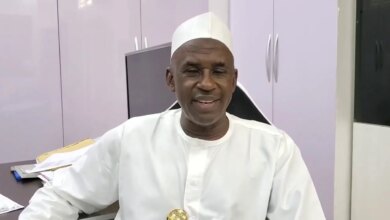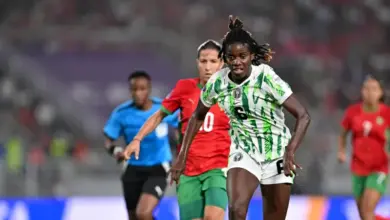When Love Becomes a Crime: Sexual Courtesy for the Boy Child

In Ghana today, many young boys end up in trouble with the law, not because they are wicked, but because no one ever taught them what the law says about sex and consent.
Most conversations on sexual reproductive health and rights (SRHR) education focus on girls — how they should protect themselves, avoid pregnancy, and report abuse. While this focus is important, boys are often left out. This silence has created a serious gap that needs attention. Boys also need to understand consent, respect, and the legal consequences of sexual activity.
Why Boys Need Sexual Education
Sexual education is not only about health; it is also about law, discipline, and responsibility. According to UNICEF’s Summary Report on Adolescents in Ghana (2022, p.7), about 10% of girls and 7% of boys had their first sexual experience before age 15. This means many boys start sexual activity early, often without understanding what is right or wrong under the law. Without the right guidance, some break laws they do not even know exist.
The Criminal Offences Act, 1960 (Act 29) gives clear rules about sexual conduct. Section 101(2) states that “a person who has sexual intercourse with a child under 16 years of age, with or without the child’s consent, commits the offence of defilement.” In simple terms, even if the girl says “yes,” it is still a crime if she is under 16. The punishment, under section 101(1), is a minimum of seven years in prison.
Sadly, many boys are yet to know this. The National Development Planning Commission (NDPC) in its 2020 Annual Progress Report (p.18) recorded over 1,000 defilement cases reported to DOVVSU that year. Section 26 of Act 29 also reminds us that “ignorance of the law is no excuse.”
Understanding Consent and Sexual Offences
To teach boys effectively, we must explain the law in simple language. Under Section 97 of Act 29, rape means having sexual intercourse with a woman without her consent. Section 103 defines indecent assault as any unwanted sexual touching or exposure, even without penetration. Both are serious crimes.
The Children’s Act, 1998 (Act 560) protects minors. Section 2(2) says the best interest of the child must come first in every situation involving a child, and Section 3 forbids all forms of violence or sexual exploitation. These laws make it clear that sex with a minor, even between teenagers, is wrong and punishable by law. Boys must know that the responsibility to stop such acts rests on them.
Health and Social Effects
Irresponsible sexual behaviour brings serious health problems. UNICEF’s Fact Sheet on Adolescent Girls in Ghana (2018, p.3) showed that three out of four girls aged 15–19 did not use condoms during their last sexual encounter with a non-marital partner. This exposes both girls and boys to HIV and other sexually transmitted infections, unplanned pregnancies, and emotional trauma.
The World Health Organization (WHO, 2021) advises that real sexual education must go beyond biology. It should teach respect, self-control, and equality. When boys understand this, they stop seeing sex as proof of manhood. Instead, they learn that true maturity means protecting others and taking responsibility for their actions.
Ghana’s Policy Commitments
Ghana has made strong commitments to improve sexual and reproductive health for young people. The Sustainable Development Goals (SDGs), especially Goals 3, 4, and 5, call for good health, quality education, and gender equality.
In the NDPC’s ICPD@30 Review Report (2023, p.18), Ghana pledged to “strengthen comprehensive sexuality education and youth-friendly services” for both boys and girls. The UNFPA Child Marriage Country Profile – Ghana (2021, p.2) reports that 19% of young women were married before age 18. These figures show that early sexual exposure remains a national challenge. To address this, both boys and girls must receive equal and comprehensive sexual education.
When boys know the law and understand consent, they become part of the solution. They can help stop child abuse, early marriage, and gender-based violence, supporting Ghana’s efforts to promote justice, equality, and responsible citizenship.
Building Respect and Awareness
Everyone has a role to play. Parents, teachers, pastors, imams, and health workers should talk openly with boys about sex and responsibility. It is not enough to say, “stay away from girls.” Boys need to know why. They should understand:
- The legal age of consent
- What indecent assault means
- The risks of unprotected sex
- The legal age for marriage
The Ghana Education Service (GES) and Ministry of Health (MOH) can integrate these lessons into school programmes through Comprehensive Sexuality Education (CSE). This prevents many offences that occur simply because young people do not know the law.
Conclusion
“Sexual Courtesy for Boys” means teaching boys the moral and legal truths about sex and consent. It is a national duty. Ghana’s Criminal Offences Act (Act 29) and Children’s Act (Act 560) clearly protect children from sexual harm.
By teaching boys about the law, respect, and responsibility early, we can prevent future crimes and create safer communities. As UNFPA Ghana (2023) reminds us, “investing in comprehensive sexual education is investing in the future of our youth.” Boys who are informed today will grow into men who respect women, obey the law, and help build a just and healthy Ghana.
“Educating boys about consent is protecting Ghana’s daughters and sons alike.”
BY DR. MICHAEL BAAH BINEY
🔗 Follow Ghanaian Times WhatsApp Channel today. https://whatsapp.com/channel/0029VbAjG7g3gvWajUAEX12Q
🌍 Trusted News. Real Stories. Anytime, Anywhere.
✅ Join our WhatsApp Channel now! https://whatsapp.com/channel/0029VbAjG7g3gvWajUAEX12Q






